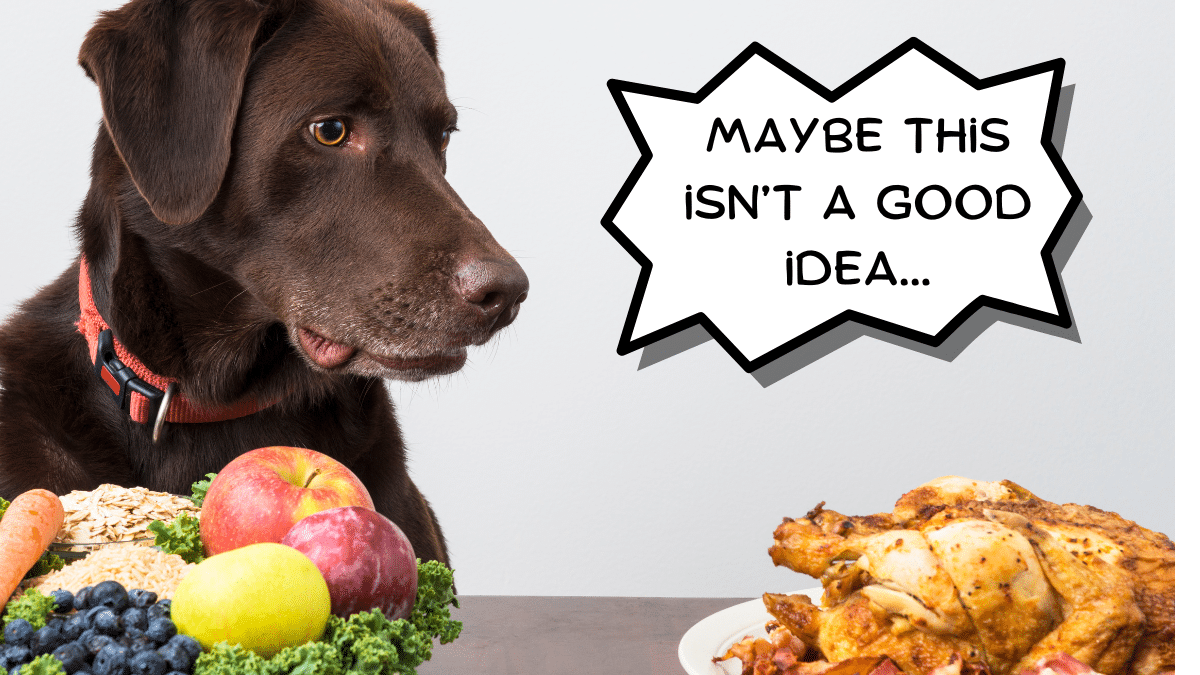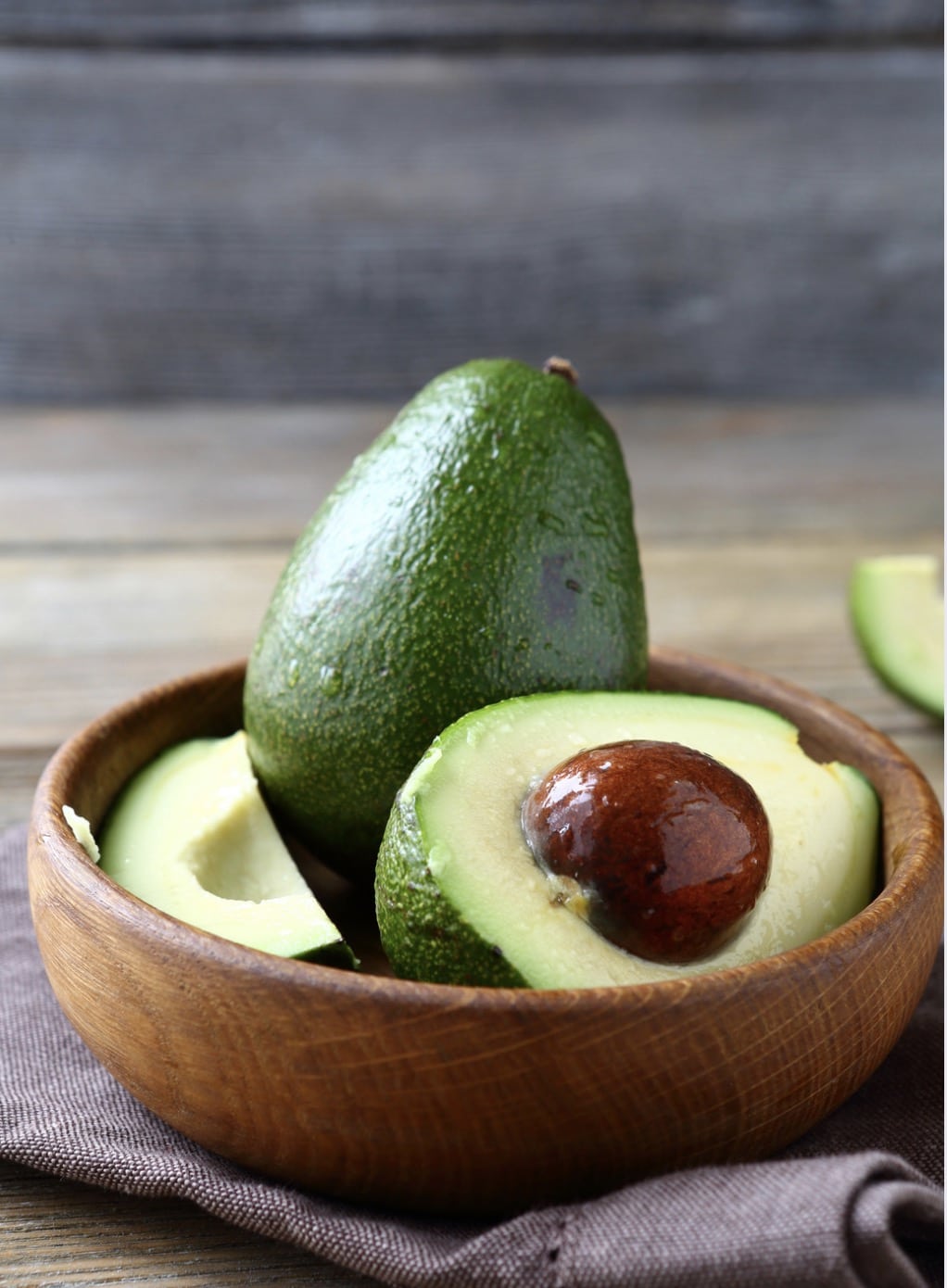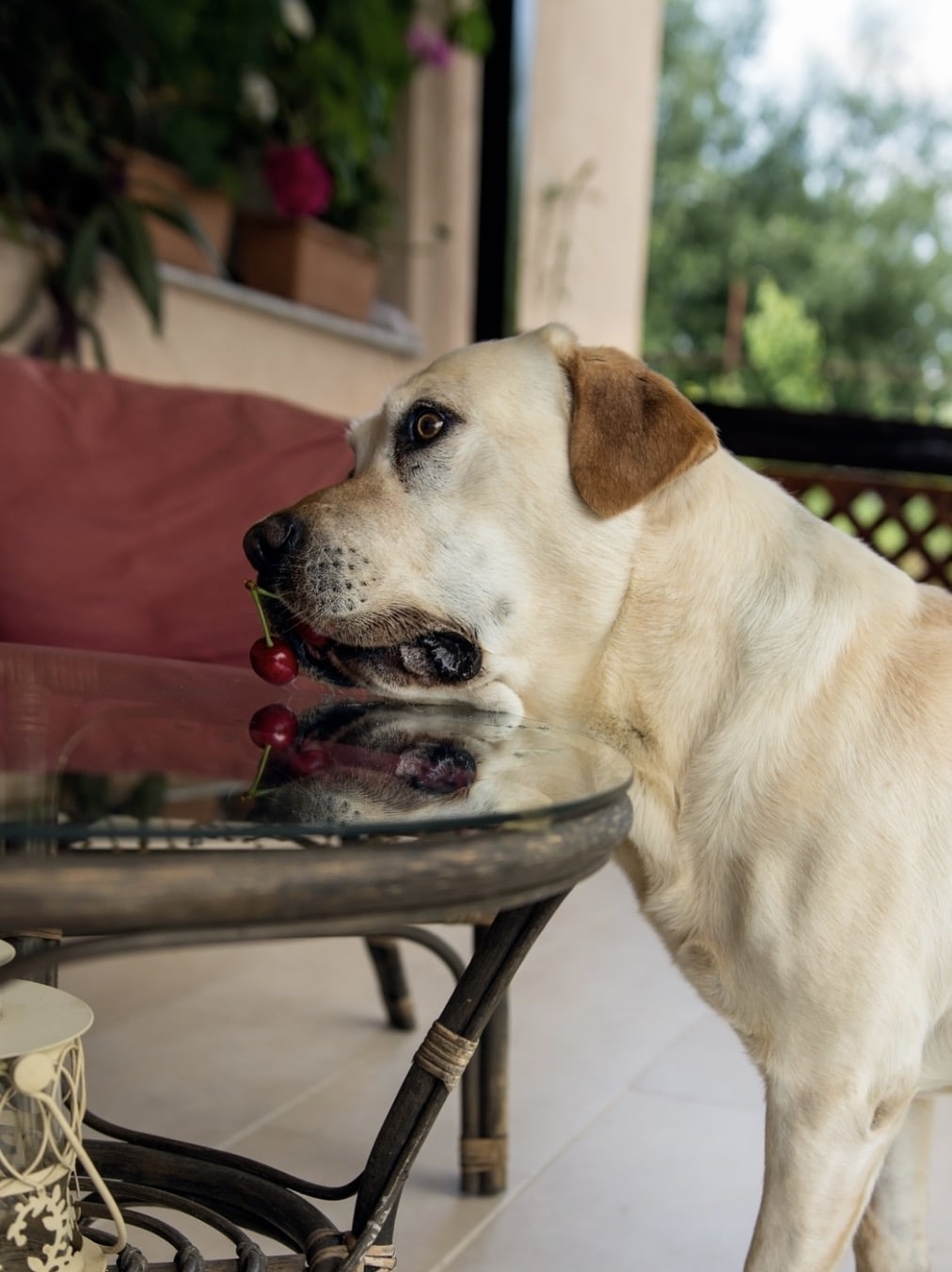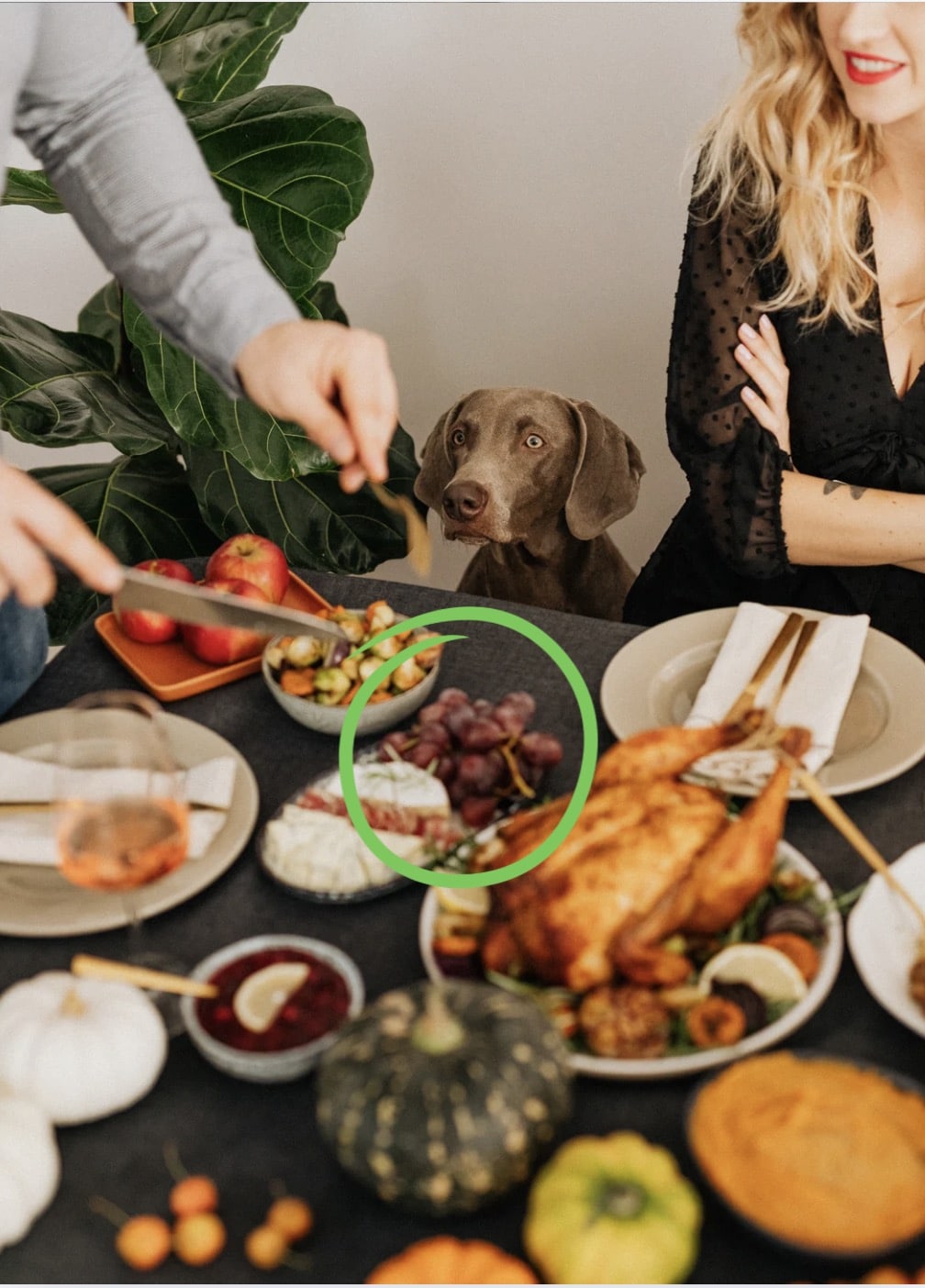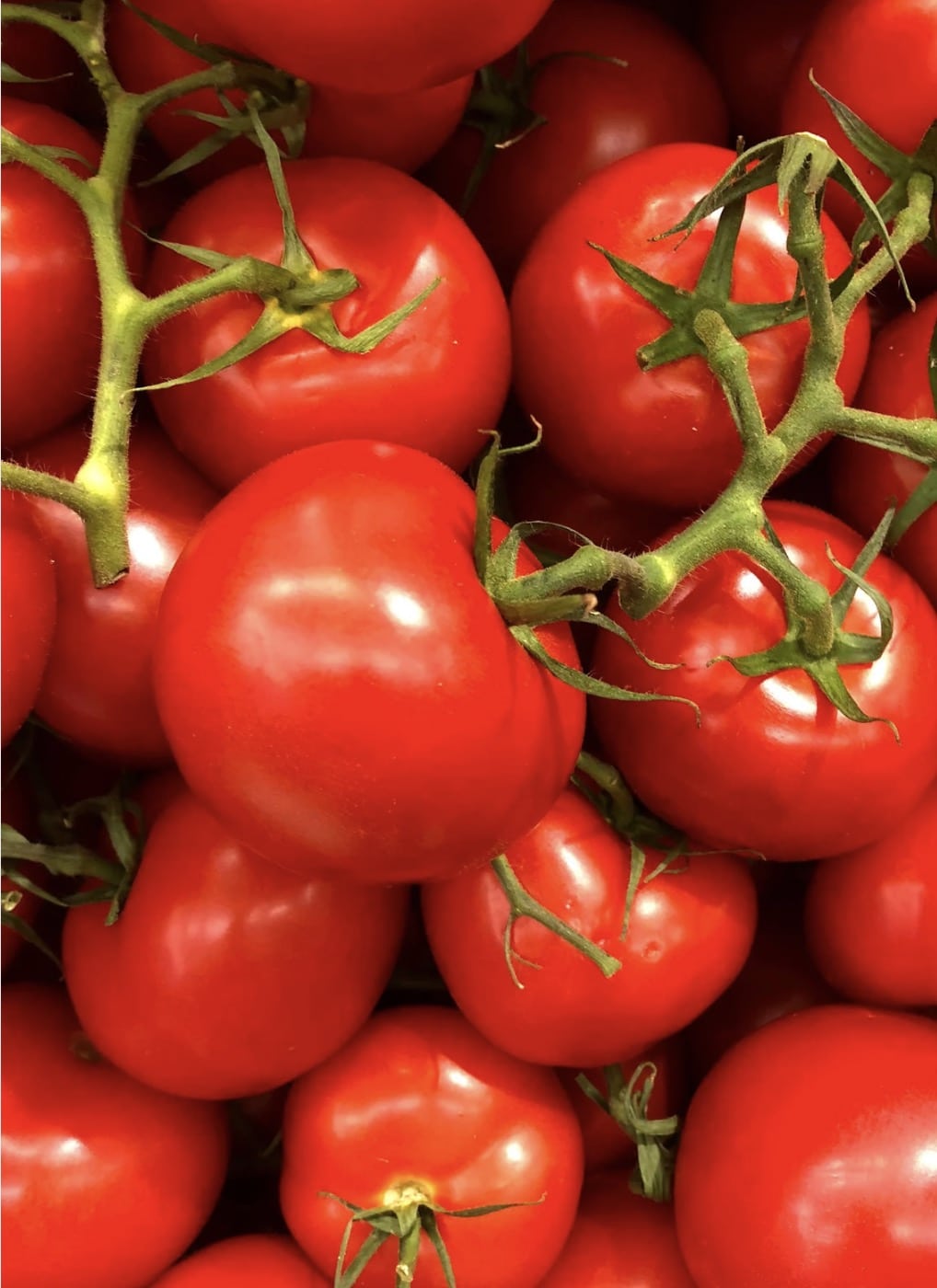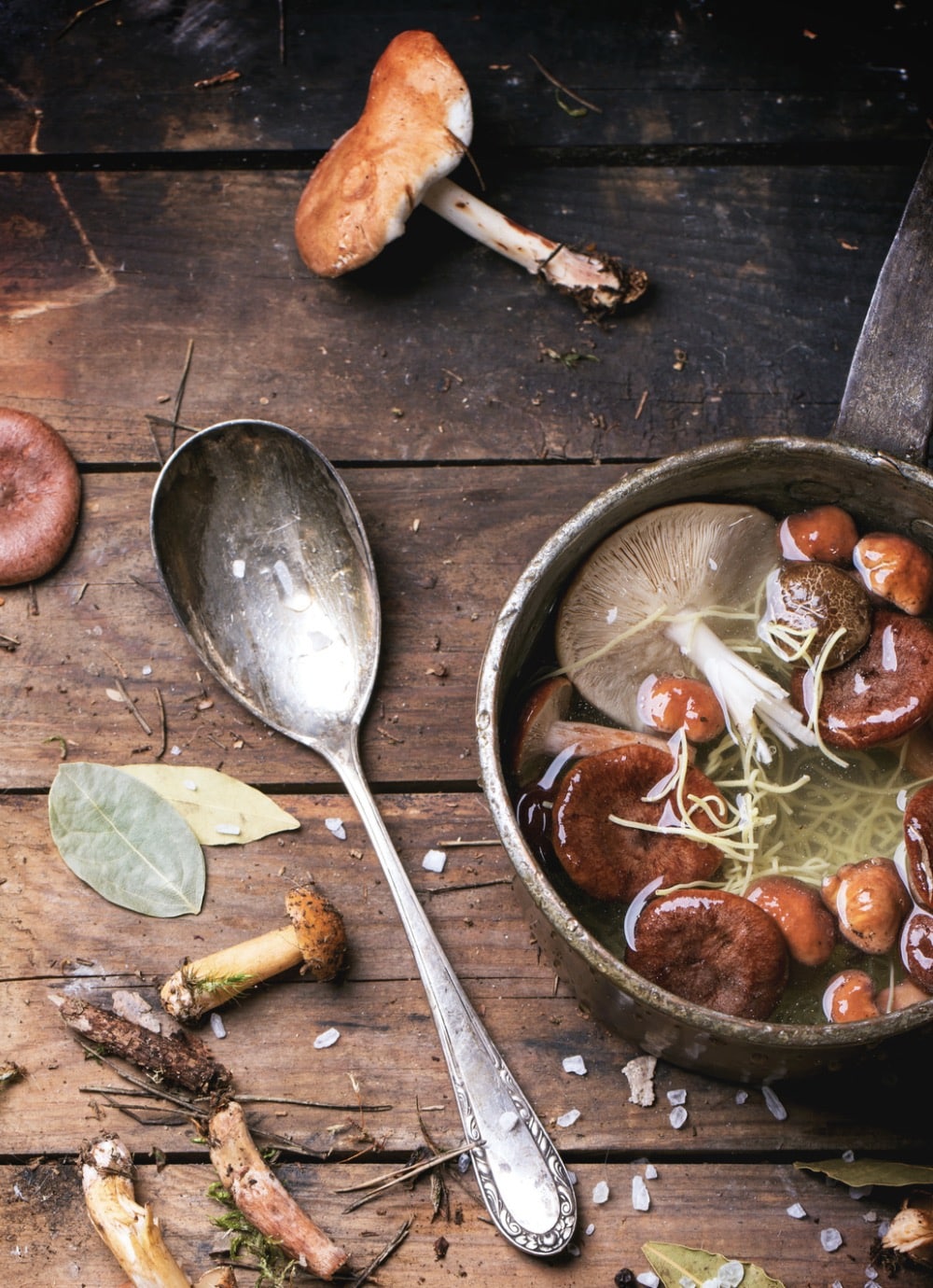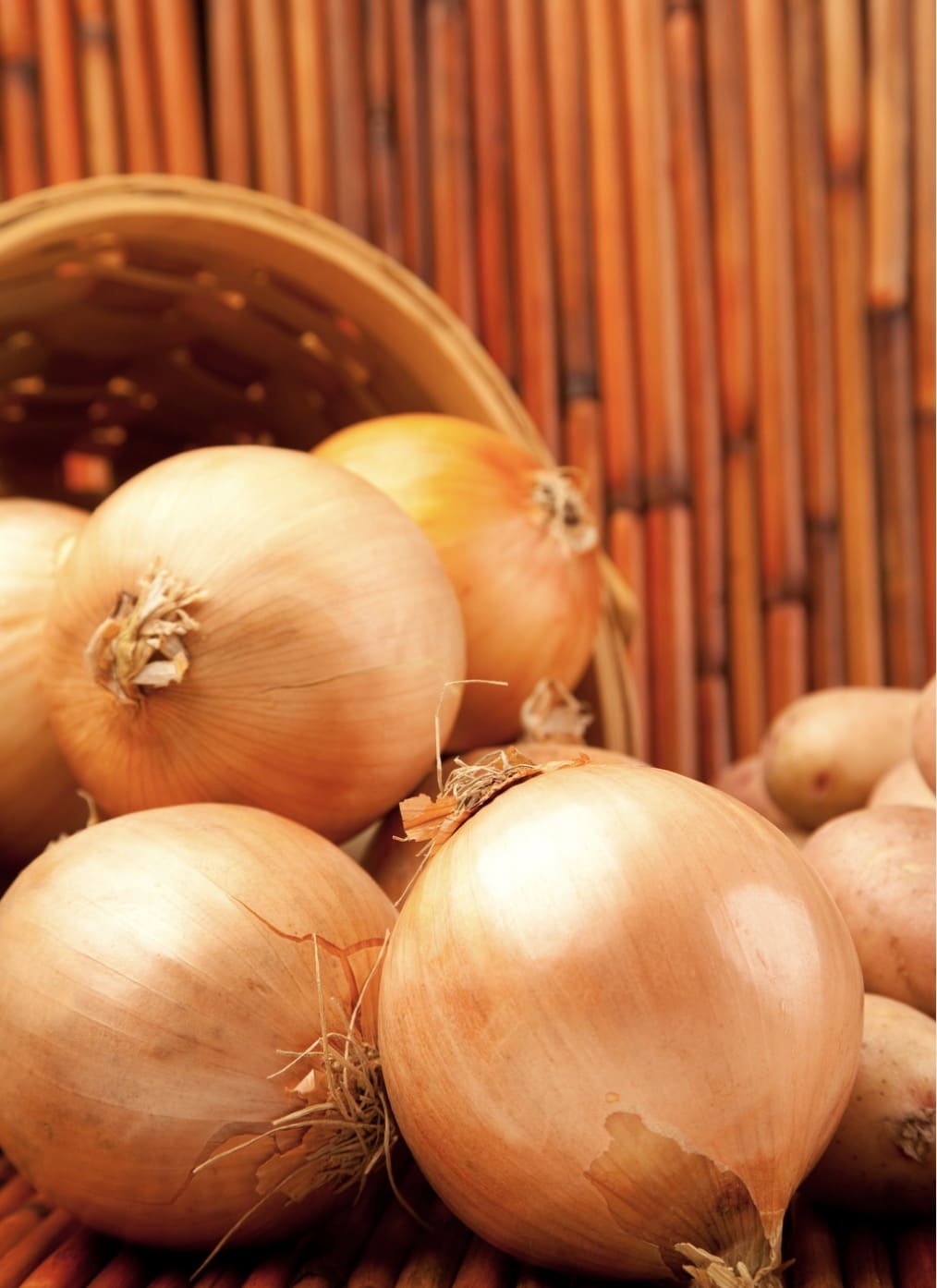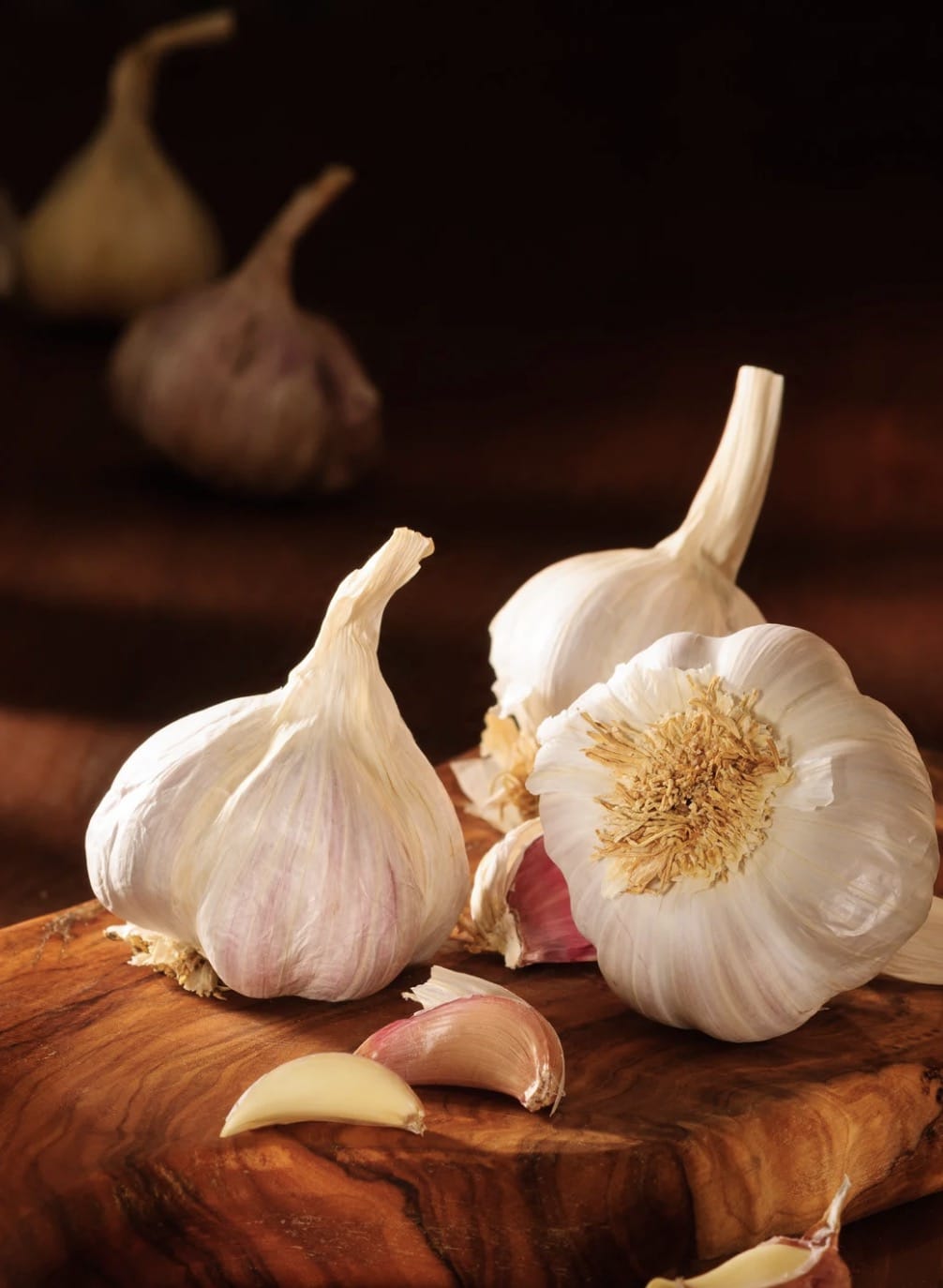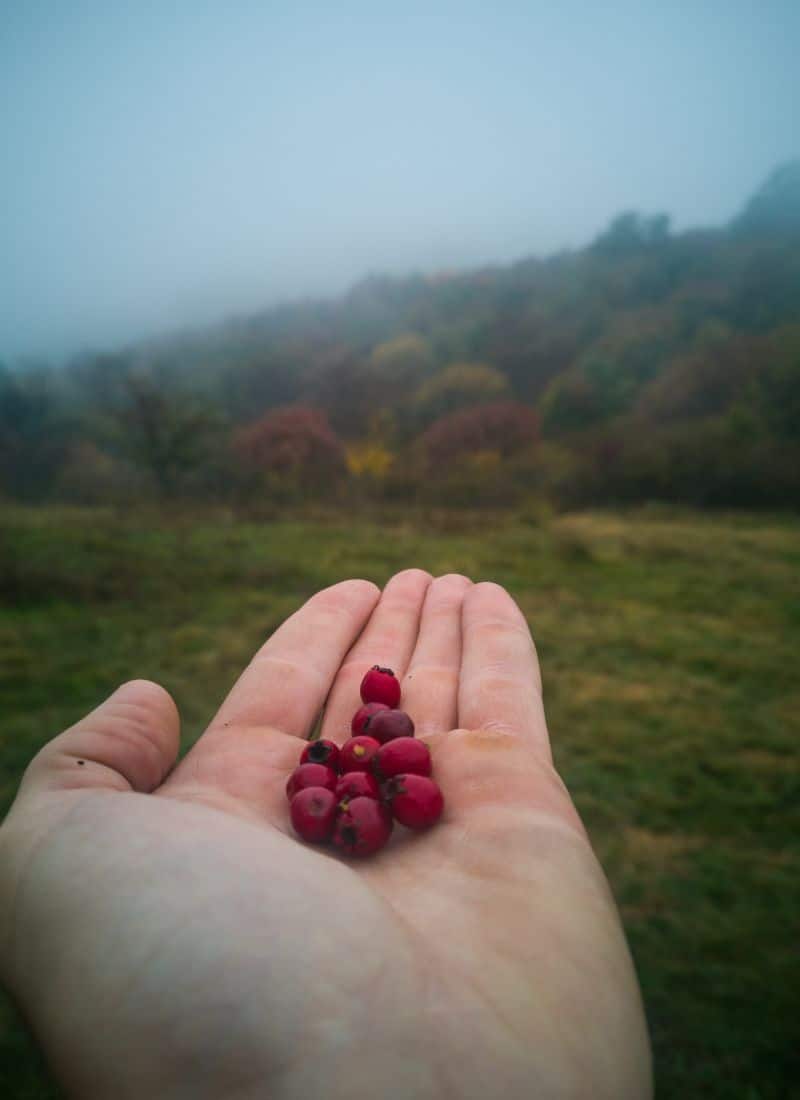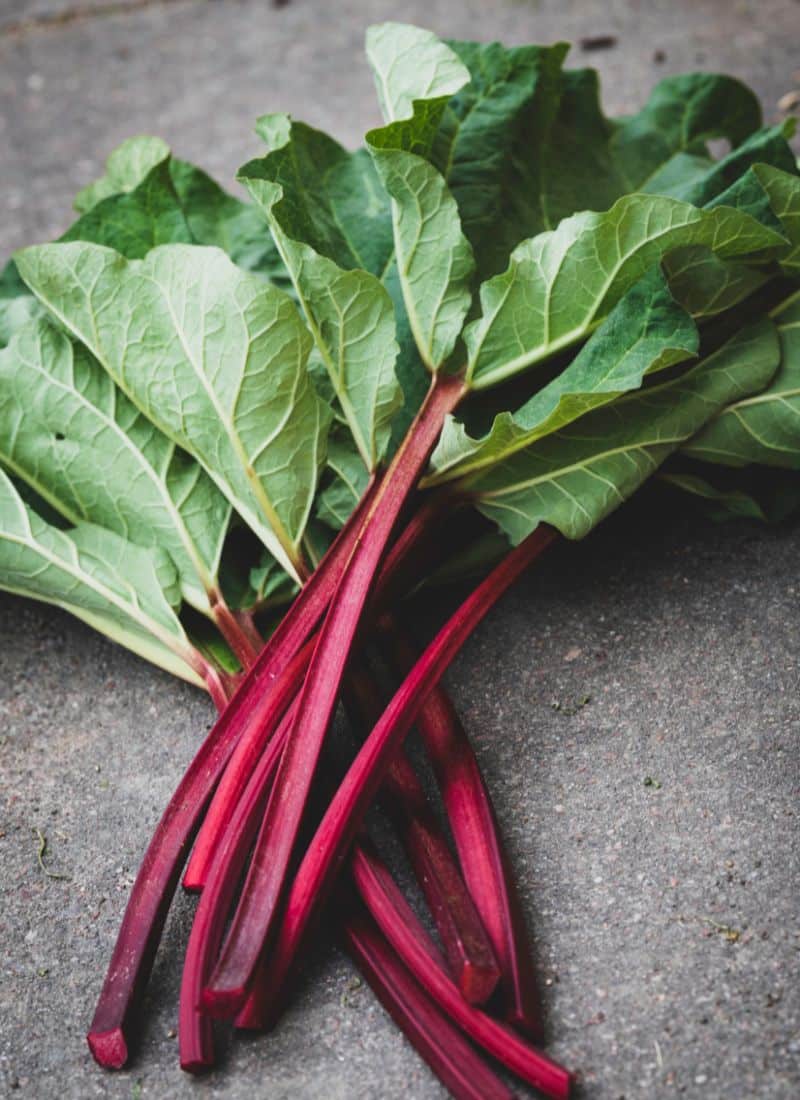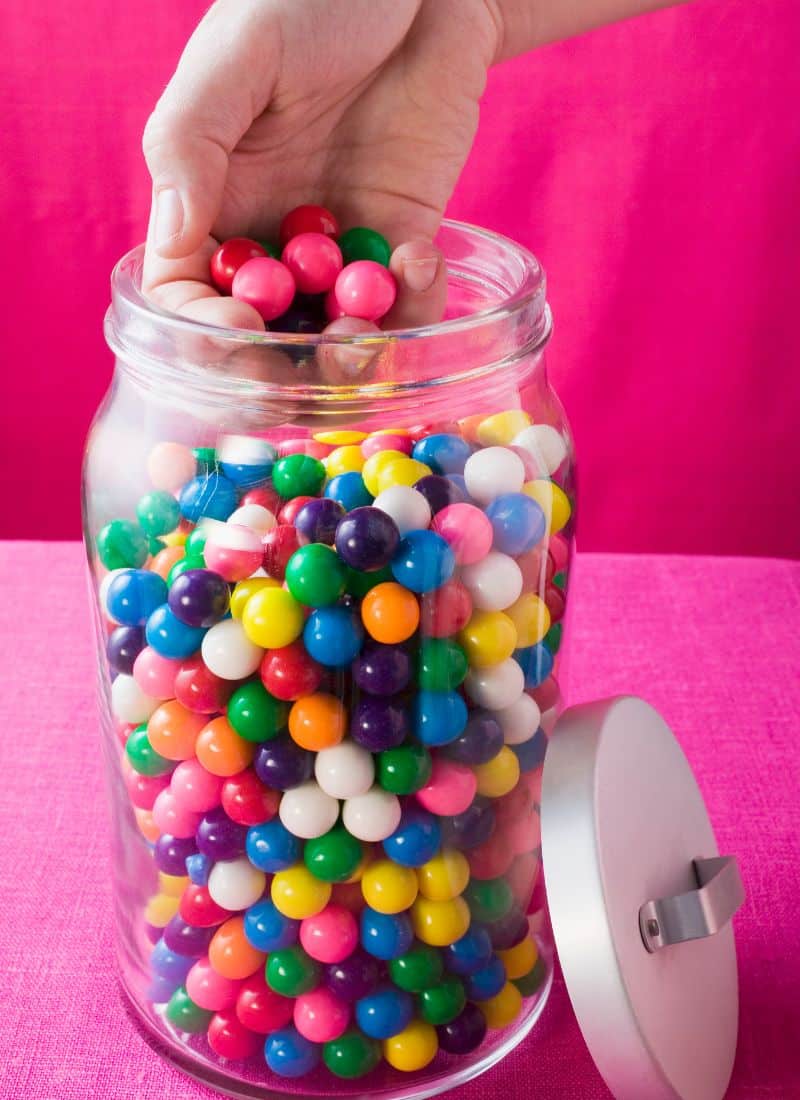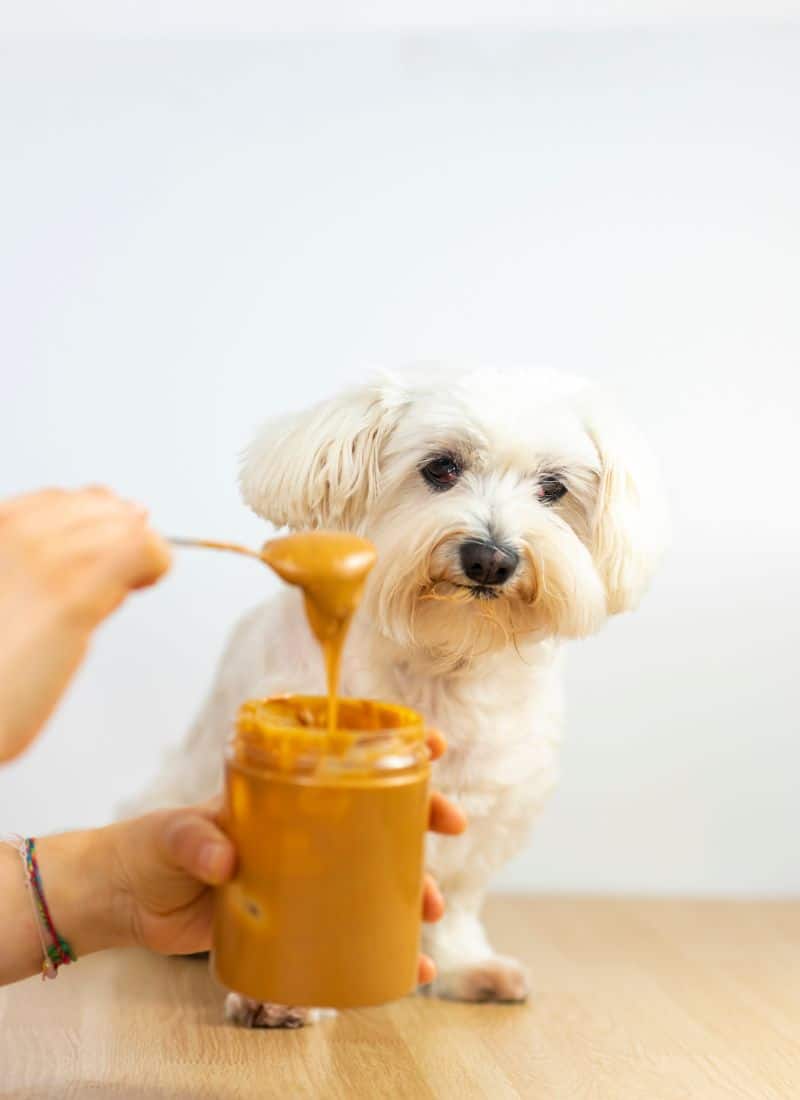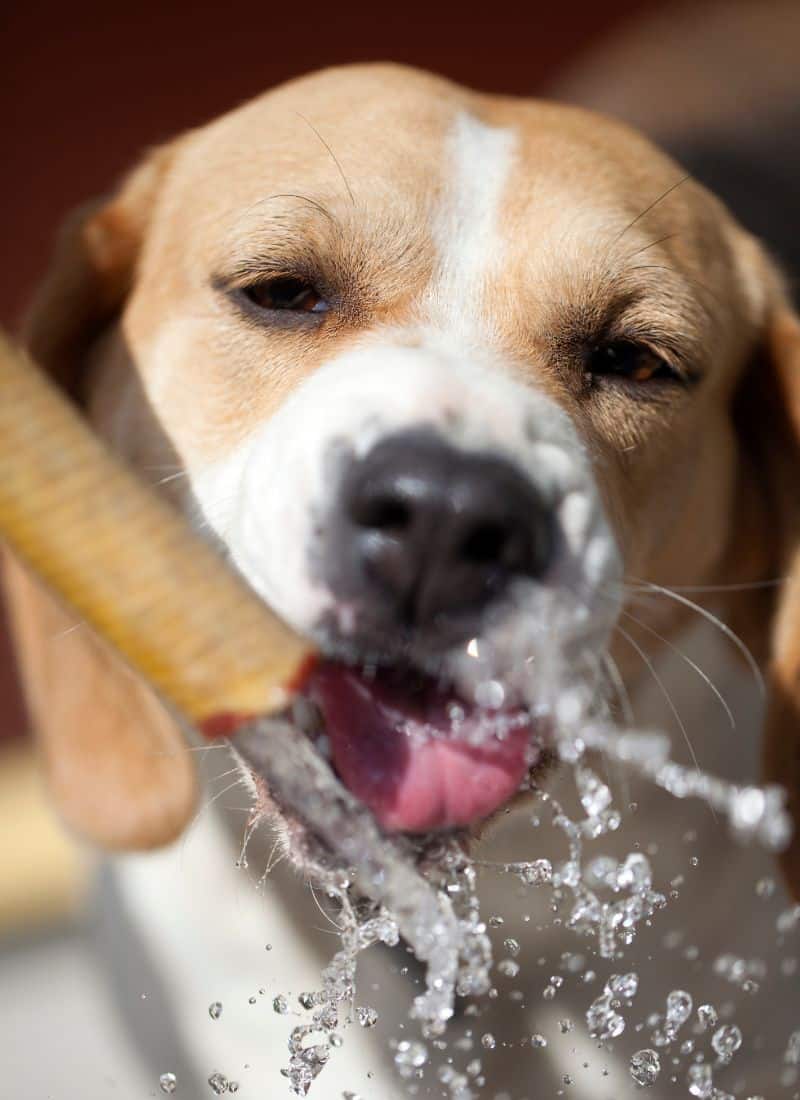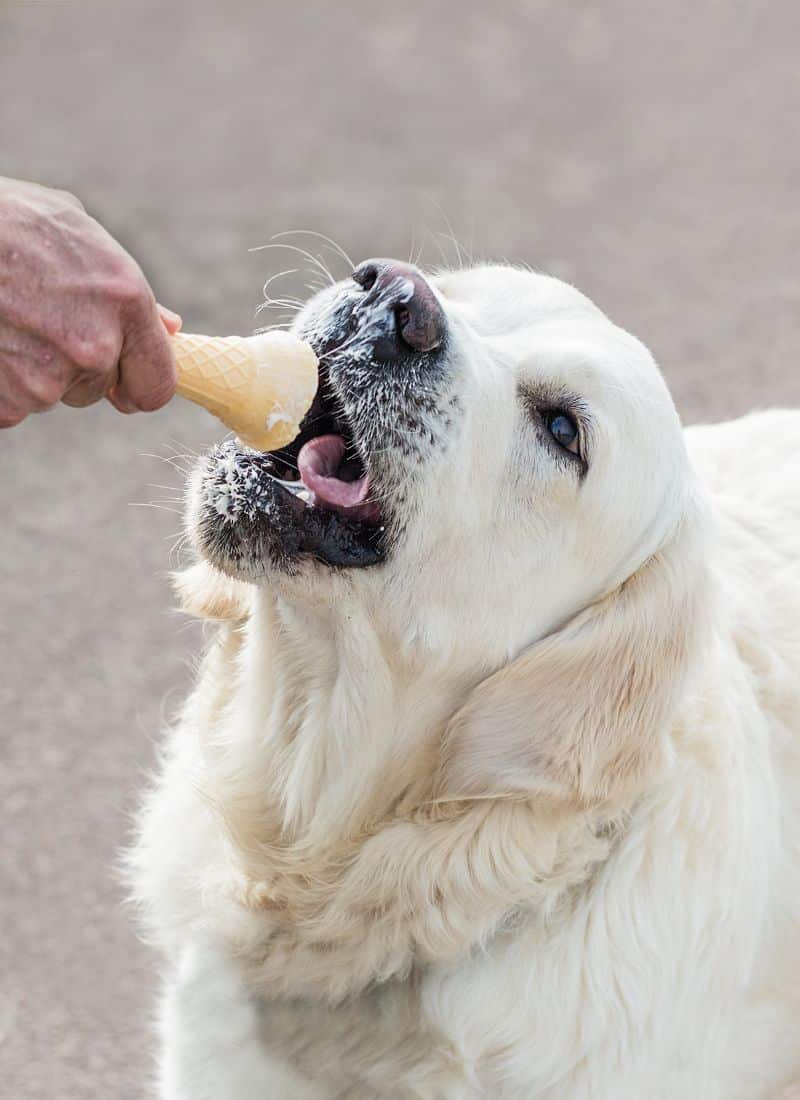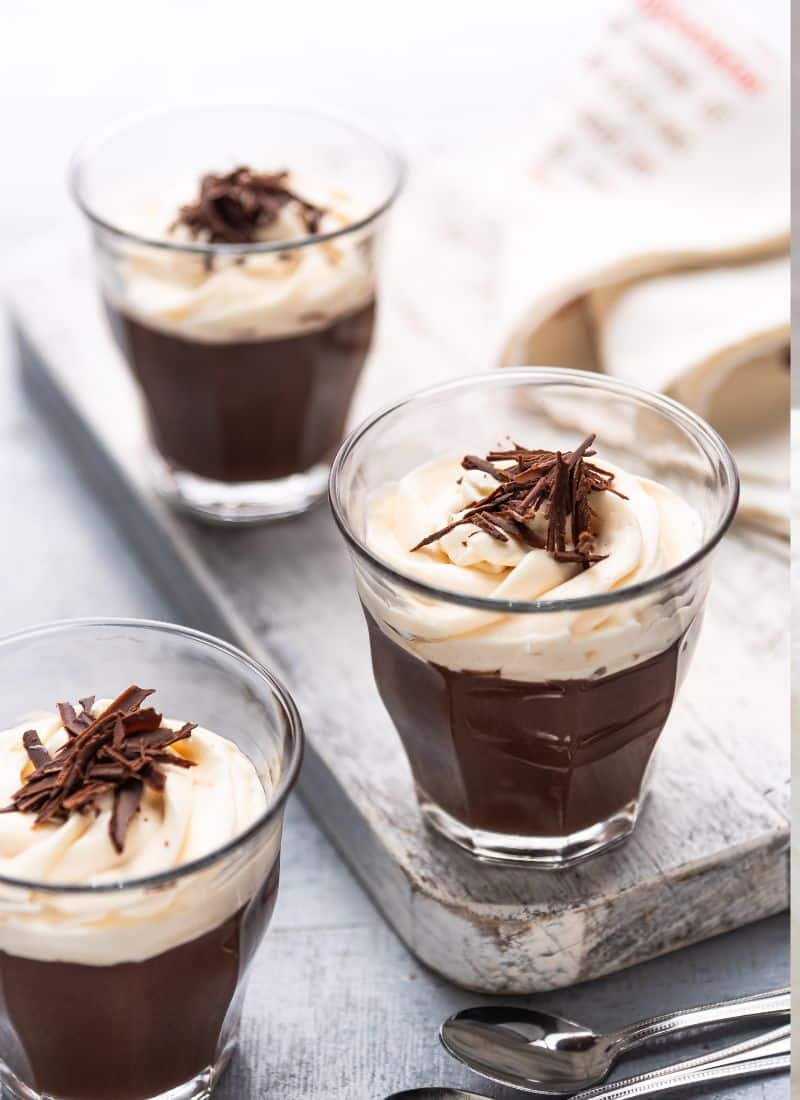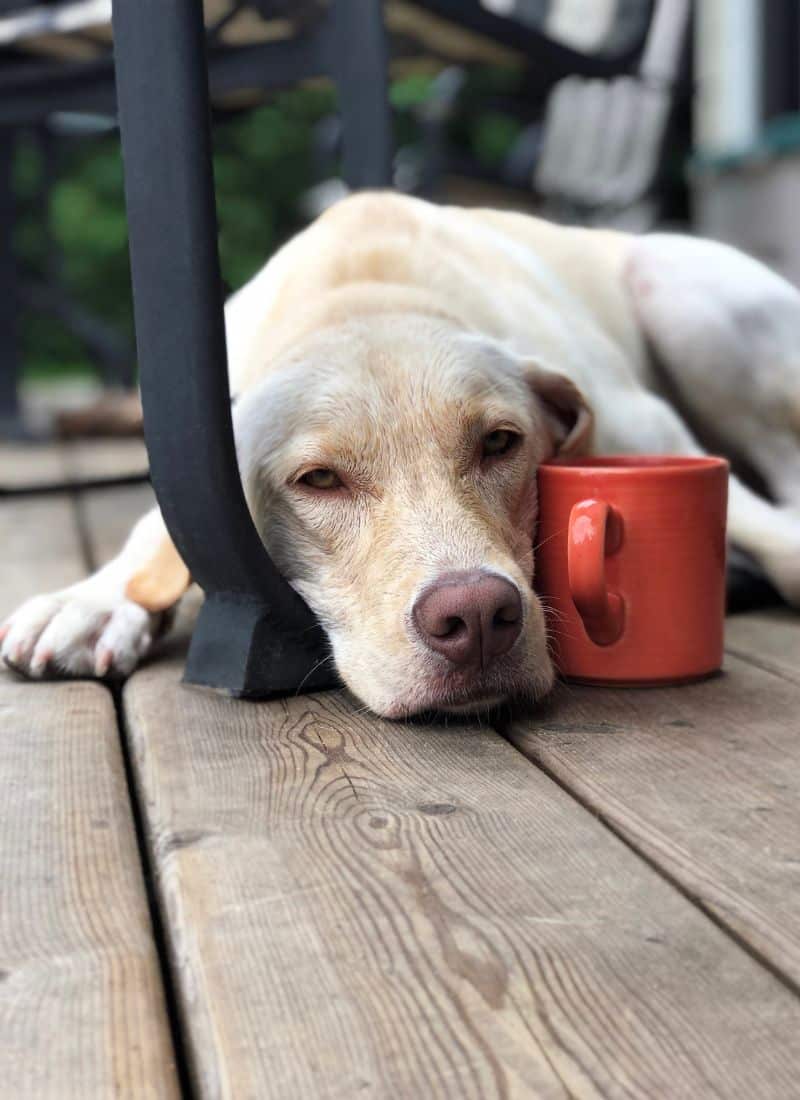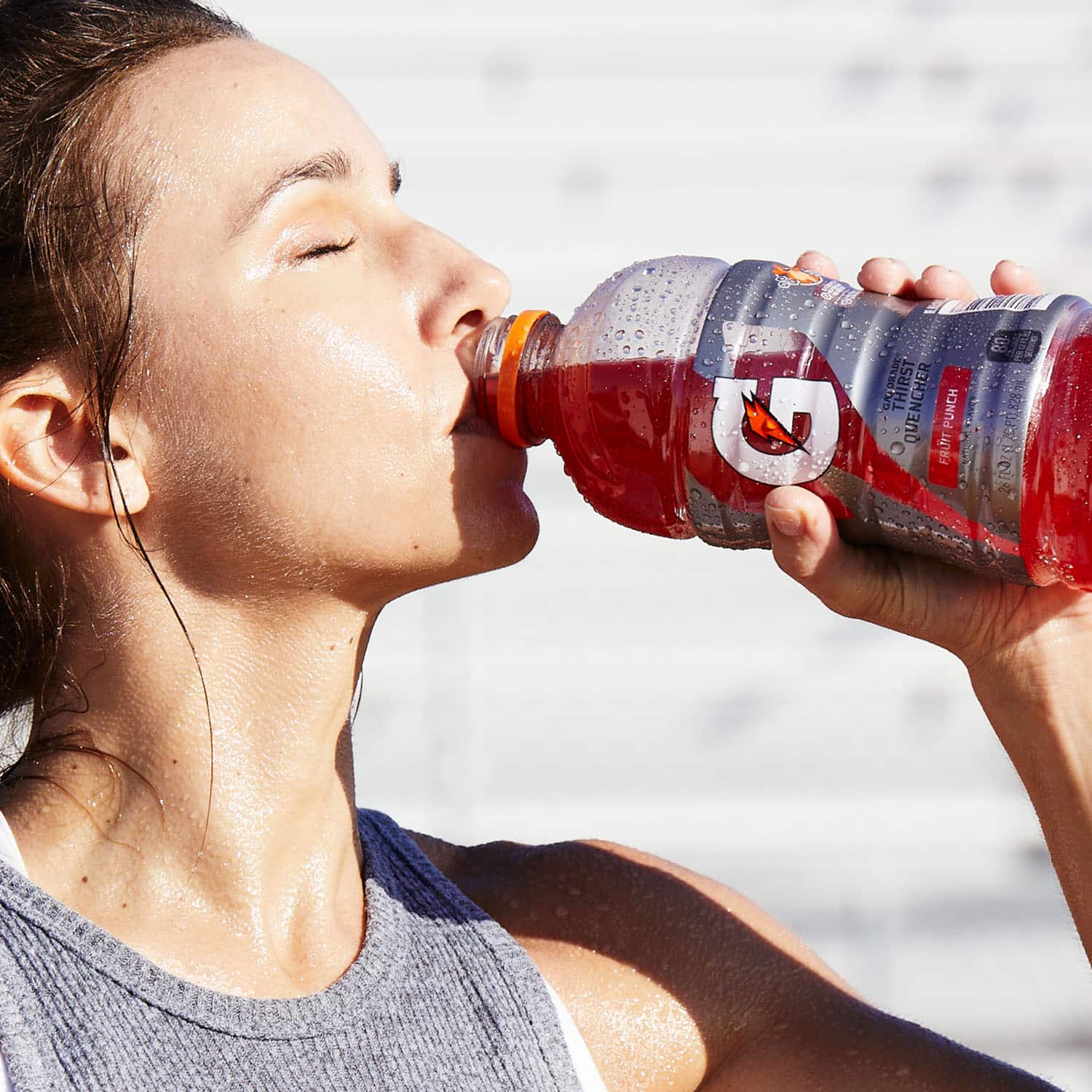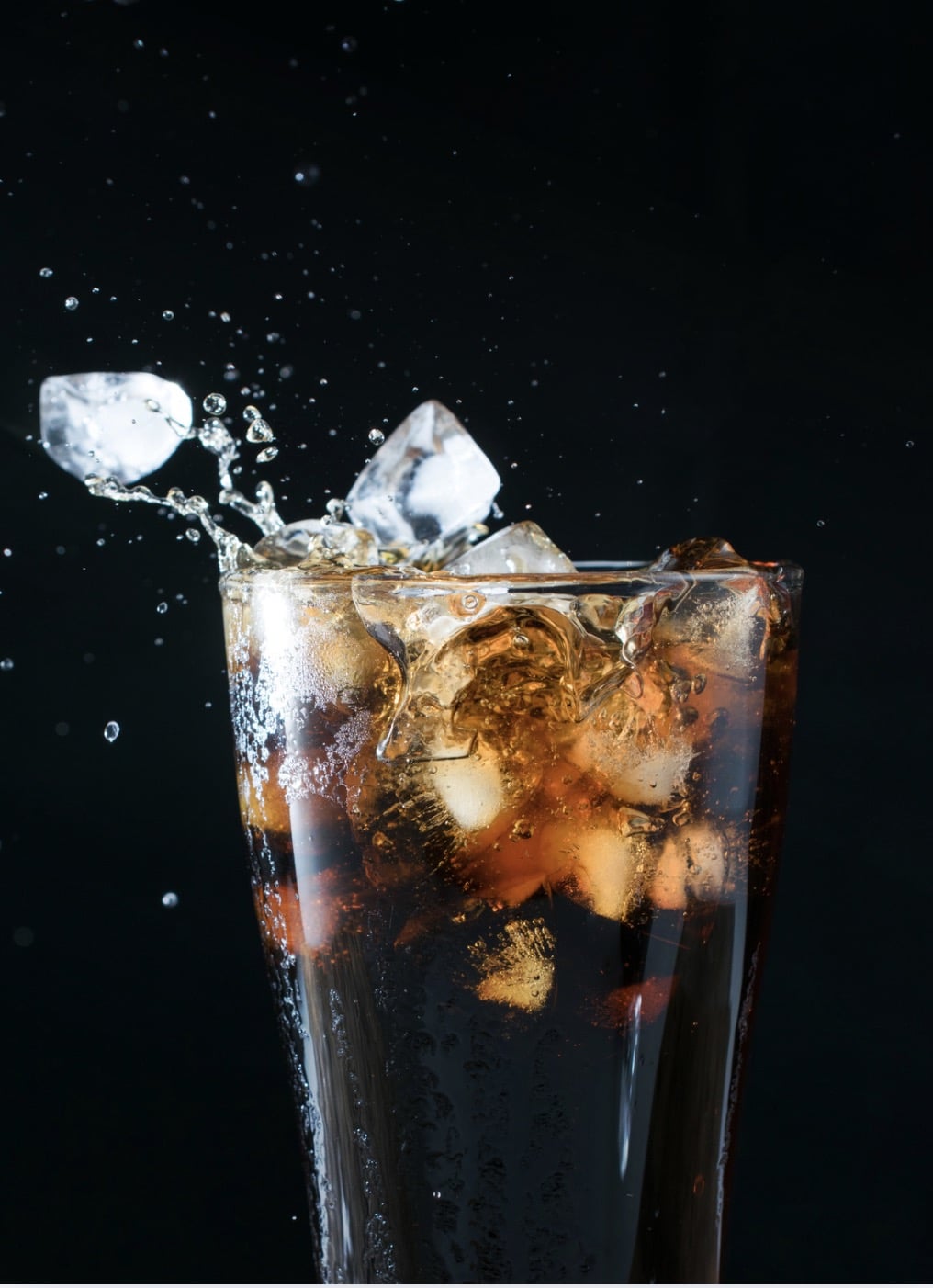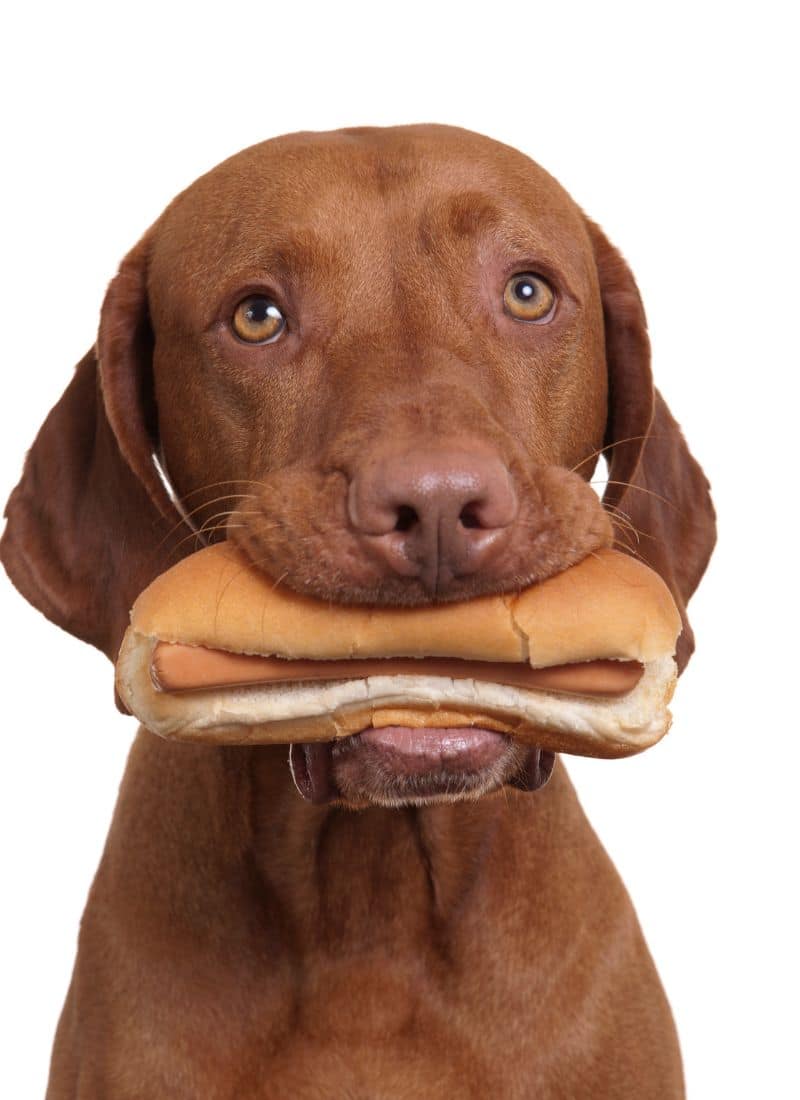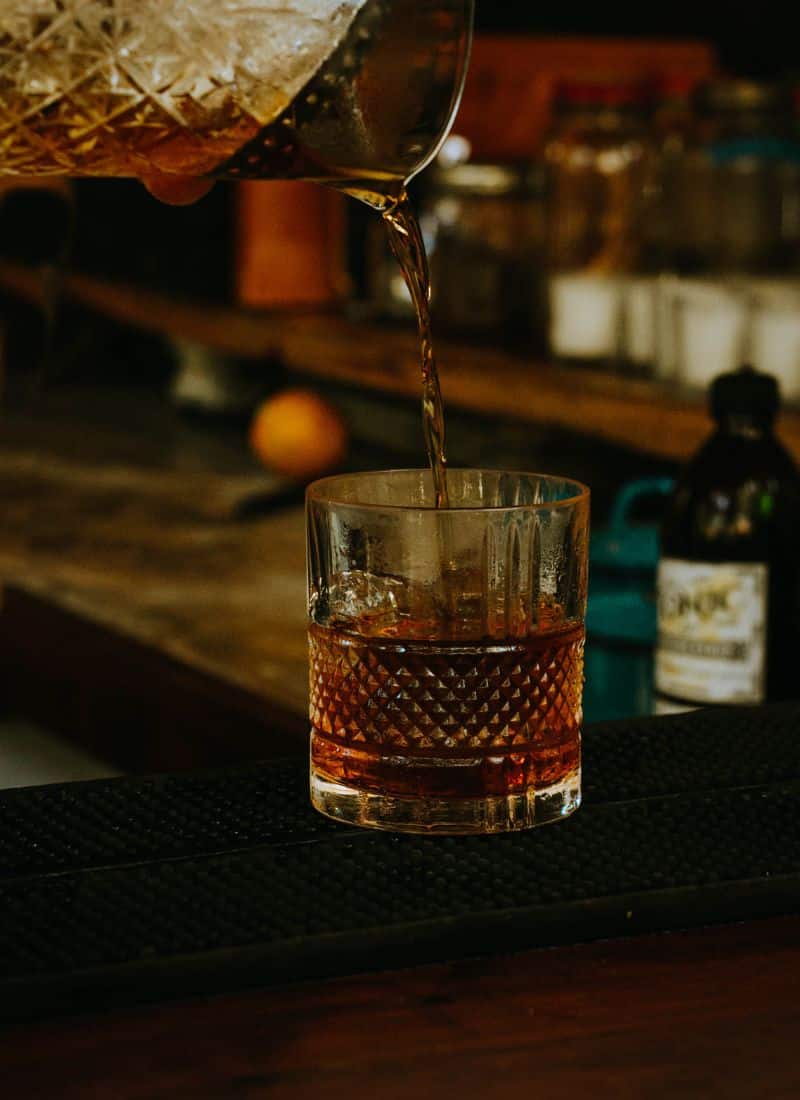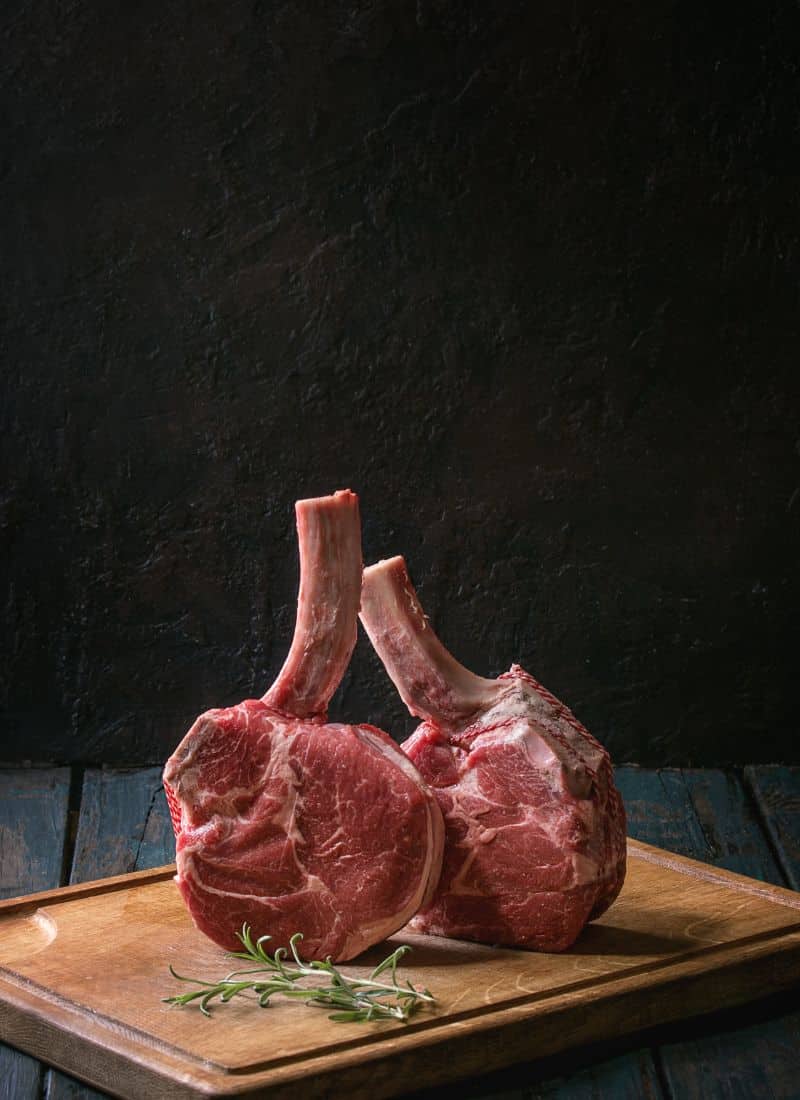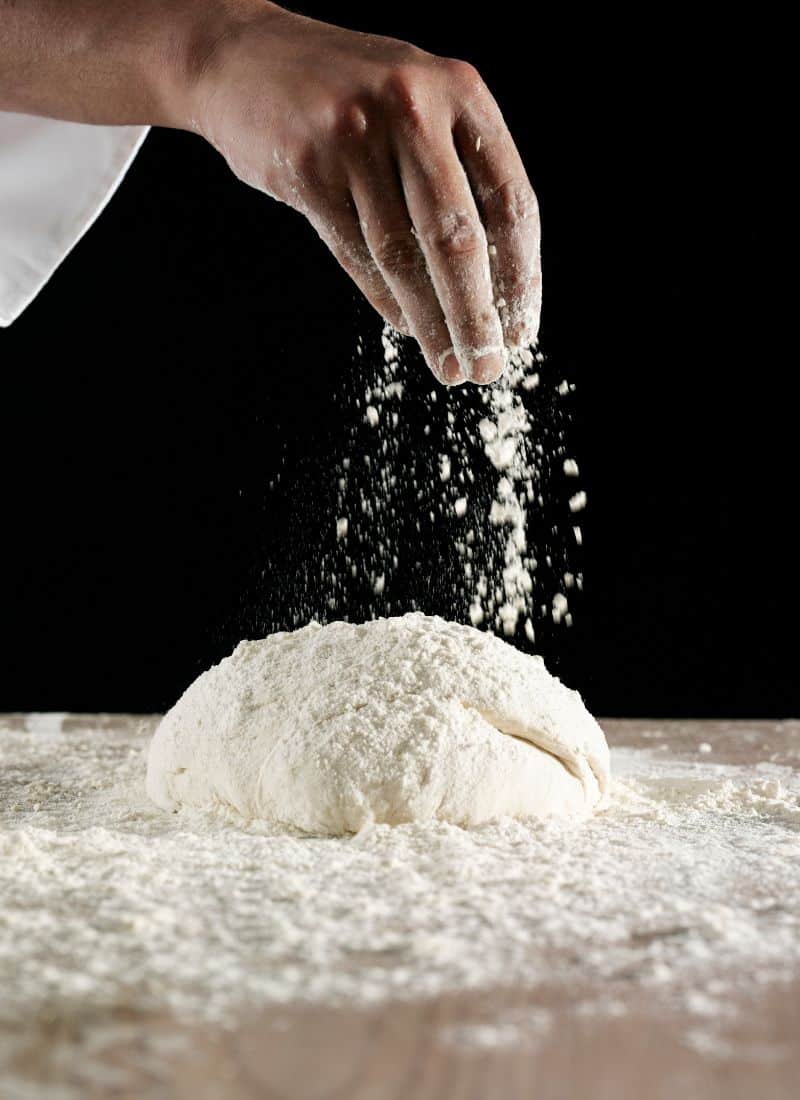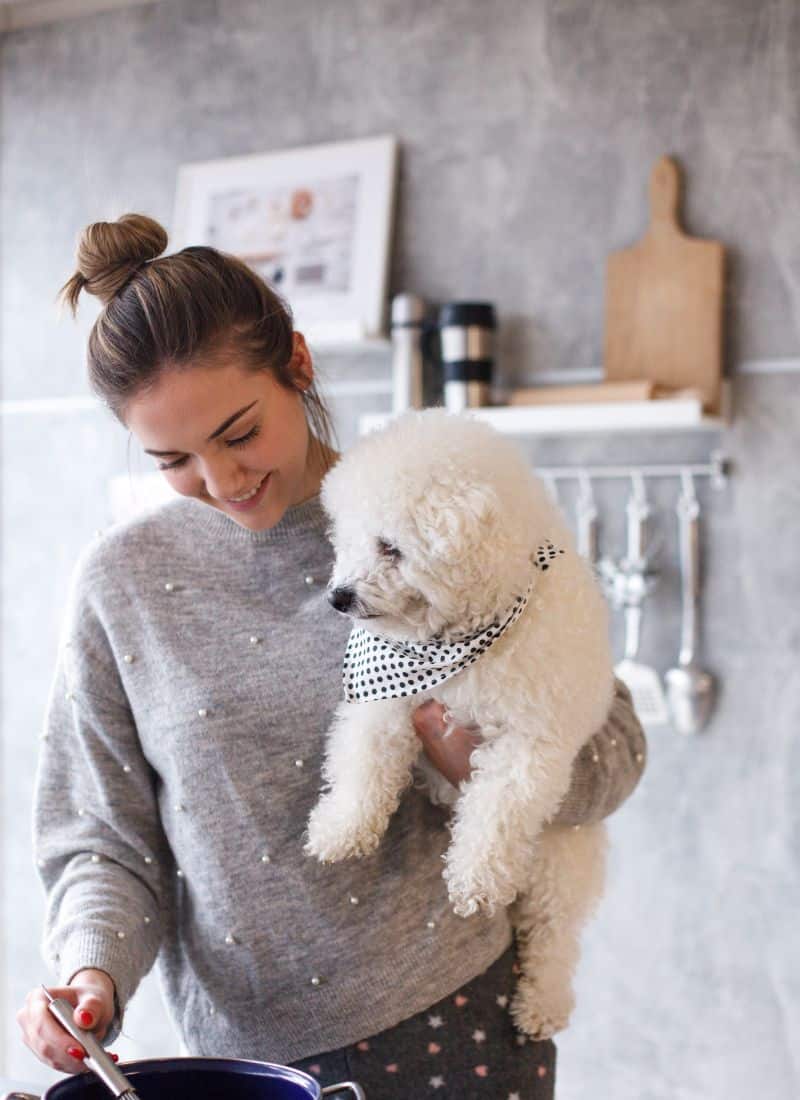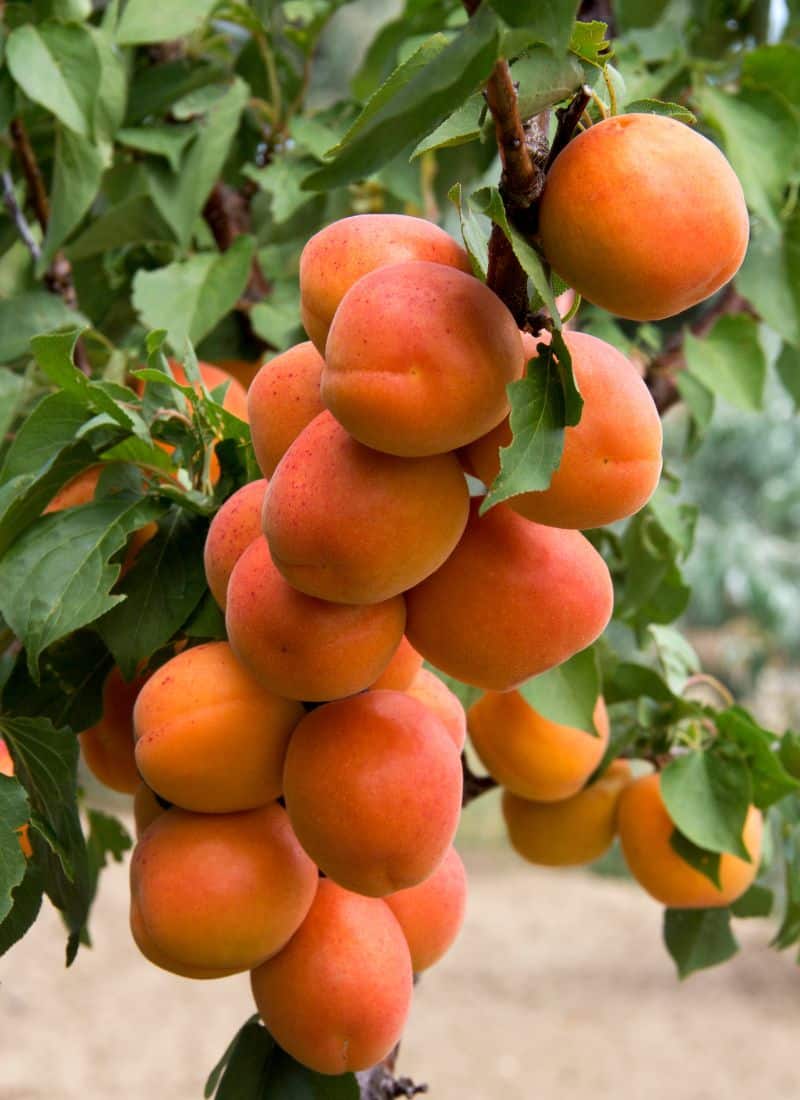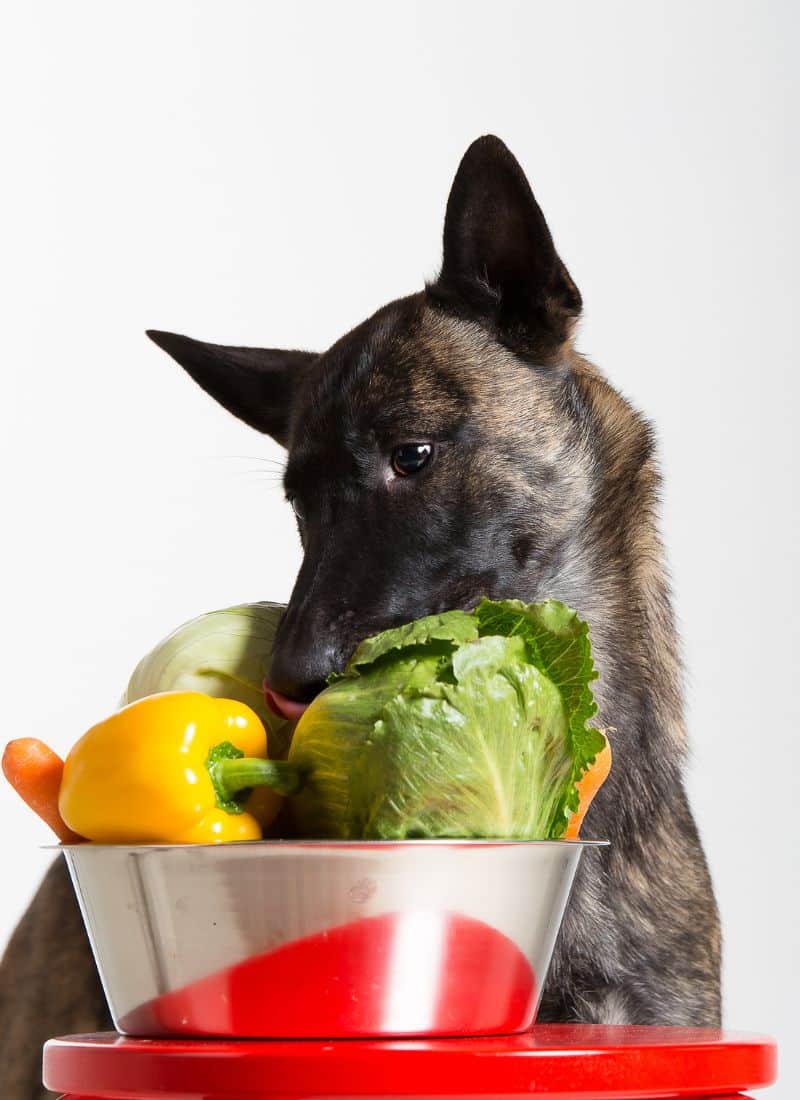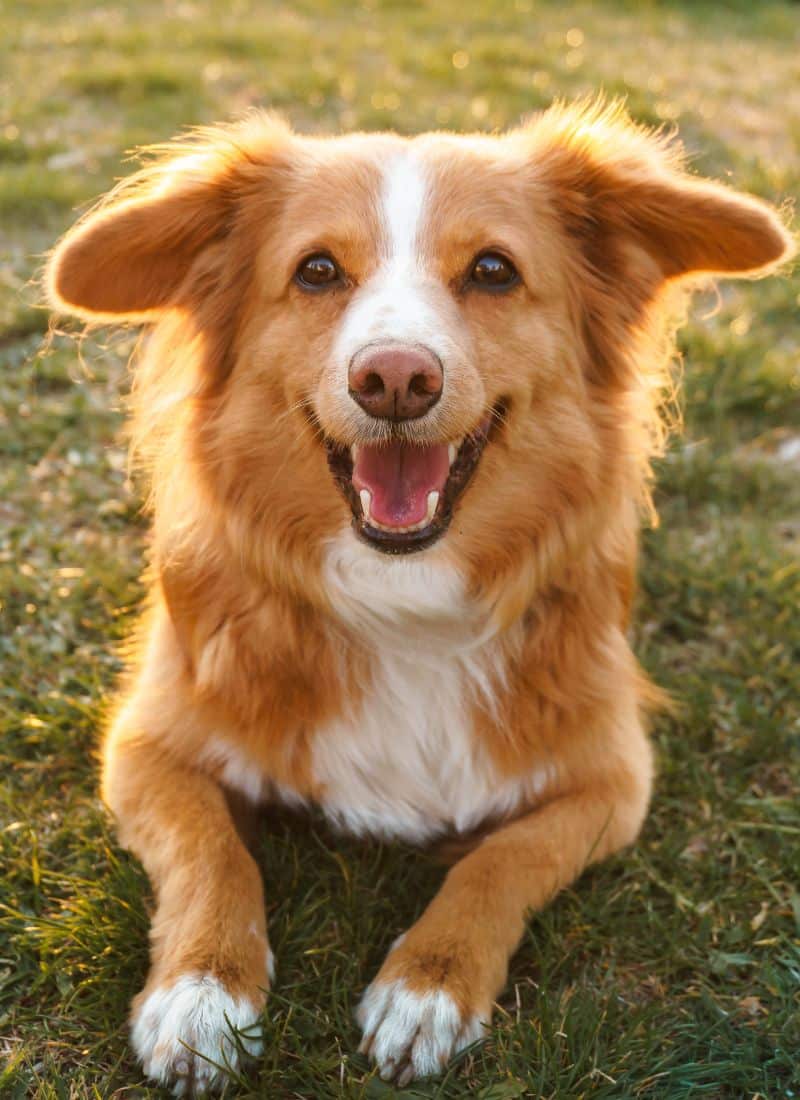Whether you’re new to dog ownership, or looking for an experienced owner looking for a refresher, here are 30 foods that you should avoid giving your dog…
1. Avocados
Avoid feeding avocados to your dog. They contain persin, a substance that can trigger vomiting and diarrhea in dogs, and in larger quantities, it can be fatal. Additionally, avocado pits are a choking hazard and could lead to intestinal blockages.
While avocados are a healthy fat source for humans, their high-fat content poses a risk of pancreatitis in dogs. Even small amounts can upset your dog’s stomach, so it’s safest to skip avocados entirely.
2. Cherries
The stems, leaves, and pits of cherries contain cyanide, a dangerous compound that can be lethal if consumed in significant amounts. Cyanide interferes with the body’s ability to utilize oxygen, damaging tissues.
While the fleshy part of the cherry is free of cyanide, it’s still not a safe option for dogs. Cherries can pose a choking hazard, making them unsuitable for your furry friend.
3. Grapes and Raisins
Both grapes and their dried form, raisins, are highly toxic foods for dogs. It takes only a few grapes or raisins to potentially cause sudden kidney failure in your dog. Keep these far out of reach.
4. Tomatoes
Tomatoes should generally be avoided for dogs. While fully ripe tomatoes are considered safe in small amounts, the green parts of the plant contain solanine, a toxic compound.
To eliminate any potential risk, it’s best to keep tomatoes off your dog’s menu.
5. Mushrooms
It’s safest to keep mushrooms off your dog’s plate. While only a small number of mushroom species are toxic to dogs, the ones that are can be extremely dangerous and potentially fatal.
Since identifying mushrooms is challenging, even for experts, there’s no guarantee your dog would encounter a safe variety. Just one bite of a toxic mushroom can be fatal. To protect your pet, it’s best to avoid letting them eat mushrooms altogether.
6. Onions
Onions are a no-go for dogs, as they contain a compound that damages red blood cells, leading to anemia.
Always check ingredient labels and avoid feeding your dog anything with onions, including onion powder or flakes. The same rule applies to other alliums like garlic, leeks, and chives.
7. Garlic
Garlic is the most harmful member of the allium family for dogs. Any food containing garlic should be kept well out of reach, as ingesting it can severely damage red blood cells, leading to their rupture and serious health issues.
8. Wild Berries
Wild berries are unsafe for dogs. While some are harmless, many can be toxic, posing serious health risks. To err on the side of caution, it’s best to keep your dog away from all wild berries.
9. Rhubarb
Rhubarb, often referred to as the pie plant, is a popular dessert ingredient but is dangerous for dogs.
It contains soluble oxalate crystals, which can be toxic and may lead to kidney failure if consumed in large amounts. Keep rhubarb out of your dog’s reach.
10. Sugar-Free Candy and Gum
Sugar-free candies, mints, and gums frequently contain xylitol, also known as birch sugar. This low-calorie sweetener is extremely toxic to dogs, potentially causing severe illness or even death.
Always store xylitol-containing products out of your dog’s reach.
To prevent xylitol poisoning, always review ingredient labels, especially on products marketed as “low sugar” or “sugar free.” Ensure all items containing xylitol are stored securely and kept out of your pet’s reach.
11. Peanut Butter with Xylitol
Peanut butter is usually safe for dogs, but always check the label first. Some brands of peanut butter and other nut butters contain xylitol, which is highly toxic to dogs and should be avoided.
Even tiny amounts of xylitol can have serious consequences for dogs, including:
- Low blood sugar
- Seizures
- Liver failure
- Death
Keep all xylitol-containing products far away from your pet.
12. Flavored Waters
Flavored waters often contain xylitol or artificial sweeteners, which can be harmful to dogs. Plain water is always best.
13. Ice Cream
Ice cream is not an ideal treat for dogs. Most pups struggle to digest the lactose in dairy products like ice cream, which can lead to:
- Vomiting
- Diarrhea
- Gas
- Stomach pain
- Pancreatitis
Additionally, ice cream often contains toxic ingredients, such as chocolate, which can be dangerous for dogs. It’s best to stick to dog-friendly frozen treats.
14. Chocolate
Chocolate is highly toxic to dogs due to its theobromine and caffeine content, both of which can cause serious heart and nervous system issues.
The darker the chocolate, the higher the theobromine levels, making semisweet and dark chocolate more dangerous than milk chocolate. Some chocolates also contain xylitol, adding to the risk.
If your dog eats chocolate, contact your veterinarian or a pet poison hotline immediately. Have details ready, such as the type and approximate amount consumed, to help determine the proper treatment. A chocolate toxicity calculator can also be a helpful resource.
15. Pudding Snacks
Pudding snacks often contain xylitol or chocolate, both of which are toxic to dogs. Avoid these sugary treats.
16. Coffee and Caffeine
While coffee might kickstart your day, caffeine is dangerous for dogs. Even small amounts can be toxic, as dogs are much more sensitive to it than humans.
Dispose of used coffee grounds securely to keep them out of reach from curious pups. Don’t forget, caffeine isn’t just in coffee—always check energy drinks and similar products to ensure they’re kept safely away from your dog.
17. Sports and Energy Drinks
Sports and energy drinks are off-limits for dogs. Many contain caffeine, which can lead to:
- Seizures
- Tremors
- Abnormal heart rhythms
- Vomiting
- Diarrhea
Additionally, some sports drinks include xylitol, a highly toxic artificial sweetener. Always keep these beverages out of reach from your pet.
18. Tea and Tea Bags
Tea contains caffeine, which is harmful to dogs. Used tea bags can also pose a choking risk or cause digestive blockages.
19. Soda
Many sodas contain caffeine or artificial sweeteners, both of which can be toxic. Keep your fizzy drinks out of paw’s reach.
20. Baked Goods
Baked goods often include ingredients that are dangerous for dogs. Whether homemade or store-bought, these treats may contain:
- Chocolate
- Xylitol
- Caffeine
To keep your dog safe, avoid sharing baked goods with them.
21. Alcohol
Alcohol is highly dangerous for dogs and should never be consumed, whether in beverages or food. Some dogs may be drawn to alcoholic drinks, so always keep them out of reach and never leave them unattended.
Alcohol affects a dog’s central nervous system and can cause symptoms such as:
- Vomiting
- Diarrhea
- Depression
- Drooling
- Decreased coordination
- Difficulty breathing
- Weakness
- Collapse
- Tremors
- Coma
- Death
Keep all alcoholic substances safely stored to protect your pet.
22. Macadamia Nuts
If macadamia nuts are a favorite snack of yours, be sure to keep them away from your dog. Even a few can be toxic to a midsize pup. Symptoms of macadamia nut poisoning in dogs include:
- Weakness
- Depression
- Vomiting
- Tremors
- Hyperthermia
To keep your dog safe, store these nuts securely and avoid sharing them.
23. Raw or Undercooked Meat
The raw feeding trend has gained popularity, aiming to mimic what wild dogs once ate. However, just because wild dogs consumed raw meat doesn’t mean it’s safe for your pet.
Raw or undercooked meat and eggs can harbor harmful bacteria like Salmonella, E. coli, and Listeria, posing serious health risks to both dogs and humans. For your dog’s safety, stick to properly cooked or veterinarian-recommended food options.
24. Uncooked Dough
While a nibble of baked bread is generally safe for dogs, uncooked yeast dough is a different story. If ingested, the dough can rise in the stomach, leading to bloating. In severe cases, this bloating can cause the stomach to twist, creating a life-threatening emergency.
Additionally, the yeast in the dough ferments carbohydrates, producing ethanol (alcohol). This can result in alcohol poisoning, making raw dough highly dangerous for dogs. Keep uncooked dough out of reach to protect your furry friend.
25. Bones

You may have heard warnings about cooked bones being unsafe for dogs, but many veterinarians caution against giving dogs any type of bone. Chewing on bones can lead to numerous health problems, including:
- Broken teeth
- Mouth and tongue injuries
- Gastrointestinal (GI) blockages
- Bones getting stuck in the jaw
- Vomiting and diarrhea
- Choking
- Internal injuries to the stomach and intestines
- Rectal bleeding
- Bones lodged in the stomach
- Bone fragments damaging the GI tract lining
- Bacterial infections from raw bones
Safer alternatives, like vet-recommended chew toys, can satisfy your dog’s need to chew without risking their health.
26. Moldy Food
You know what mold looks like… So here’s a better pic.
Even if you don’t offer moldy food to your dog, their curious nose might find it in the trash. Mold contains aflatoxin, a toxic substance that can lead to liver failure. If your dog consumes moldy food from the garbage or compost, they may experience:
- Tremors
- Seizures
- Vomiting
- Irregular heartbeat
- Lack of coordination
- Death
To keep your dog safe, ensure garbage cans are securely covered and compost piles are inaccessible.
27. Milk
Milk contains lactose, a sugar that many dogs struggle to digest because they lack enough of the enzyme lactase.
Like humans who are lactose intolerant, dogs can experience digestive issues if they consume milk. While milk isn’t toxic, it often causes stomach upset and diarrhea, making it best to avoid giving it to your pup.
28. Salt
Salt may seem harmless, but it can be toxic to dogs in large amounts. Excessive salt intake can cause:
- Diarrhea
- Vomiting
- Lack of energy
- Loss of appetite
- Increased thirst or urination
- Lack of coordination
To protect your dog, avoid feeding them salty foods and snacks.
29. Apricots
Apricots can be hazardous to dogs because the tree’s stems, leaves, and seeds contain cyanide, a highly toxic substance. Cyanide interferes with oxygen absorption, which can result in:
- Breathing difficulties
- Shock
- Death
To keep your dog safe, avoid allowing them access to any part of the apricot tree or its fruit.
30. Starfruit
Starfruit contains calcium oxalate, which can poison dogs and lead to vomiting, diarrhea, and bloody urine.
The Nice List: Foods Your Dog Can Eat (In Moderation)
Can dogs eat human food? Sometimes—but with caution.
The majority of your dog’s calories should come from their regular, nutritionally balanced diet. If you’d like to share a treat, stick to pet-safe options like:
- Carrots
- Celery
- Cooked pumpkin
- Cauliflower
- Popcorn (plain, unsalted)
- Apples (seedless)
- Bananas
- Cucumbers
- Strawberries
- Xylitol-free peanut butter
- Cheese (in moderation)
Snacks, including dog treats, should account for no more than 10% of your dog’s daily calorie intake. Human foods are often higher in fat and sugar, which can be tough for dogs to digest. Overindulgence could lead to stomach upset, obesity, or pancreatitis, so keep table scraps to a small, occasional bite.
Recognizing Food Poisoning in Dogs
The signs of food poisoning in dogs can vary depending on the substance consumed, but they often appear as gastrointestinal or neurological symptoms. Common warning signs include:
- Vomiting
- Diarrhea
- Loss of appetite
- Bloody stool
- Seizures
- Tremors
- Hyperactivity
- Lethargy
- Unsteadiness or difficulty walking
- Lack of coordination
- Bruising or bleeding
- Blood in the urine
If you notice any of these symptoms, contact your veterinarian or an emergency vet clinic immediately.
When to Call the Vet
If you suspect your dog has eaten something toxic, don’t wait. Contact your veterinarian or a 24-hour poison control service, such as the Pet Poison Helpline, as soon as possible. Early action can make a critical difference in your dog’s recovery.
Dogs are naturally curious and use their mouths to explore, so accidents happen. Knowing the signs of poisoning and acting quickly ensures your pet gets the care they need.
